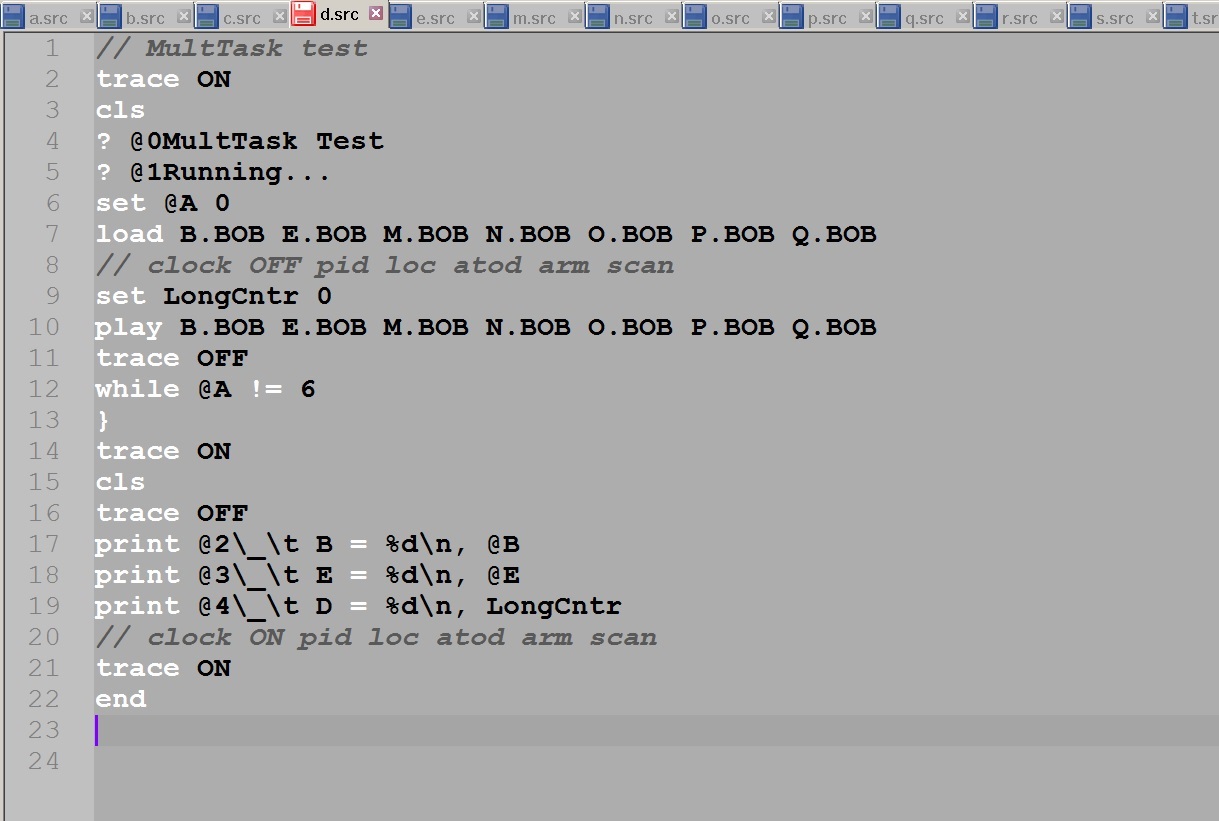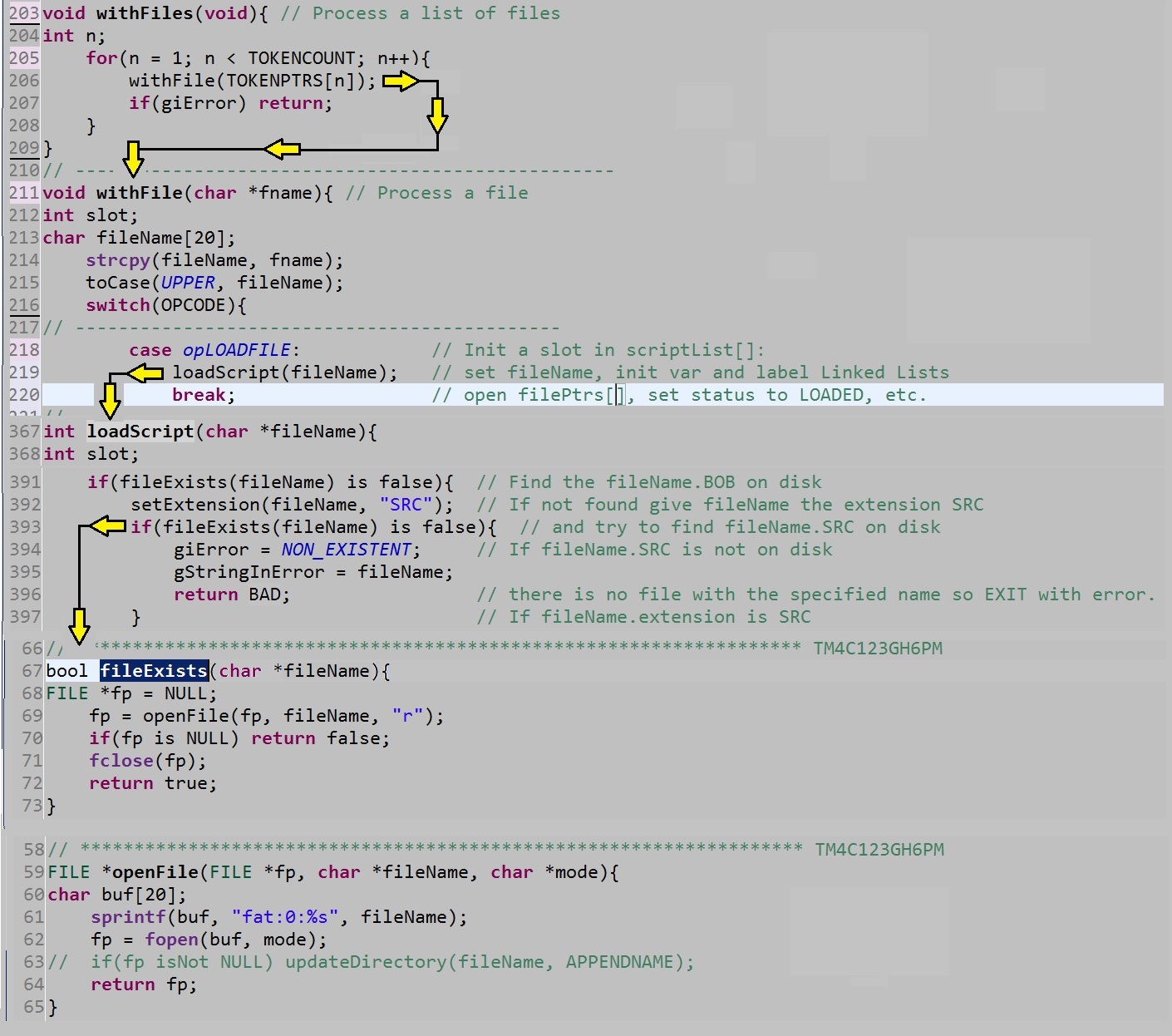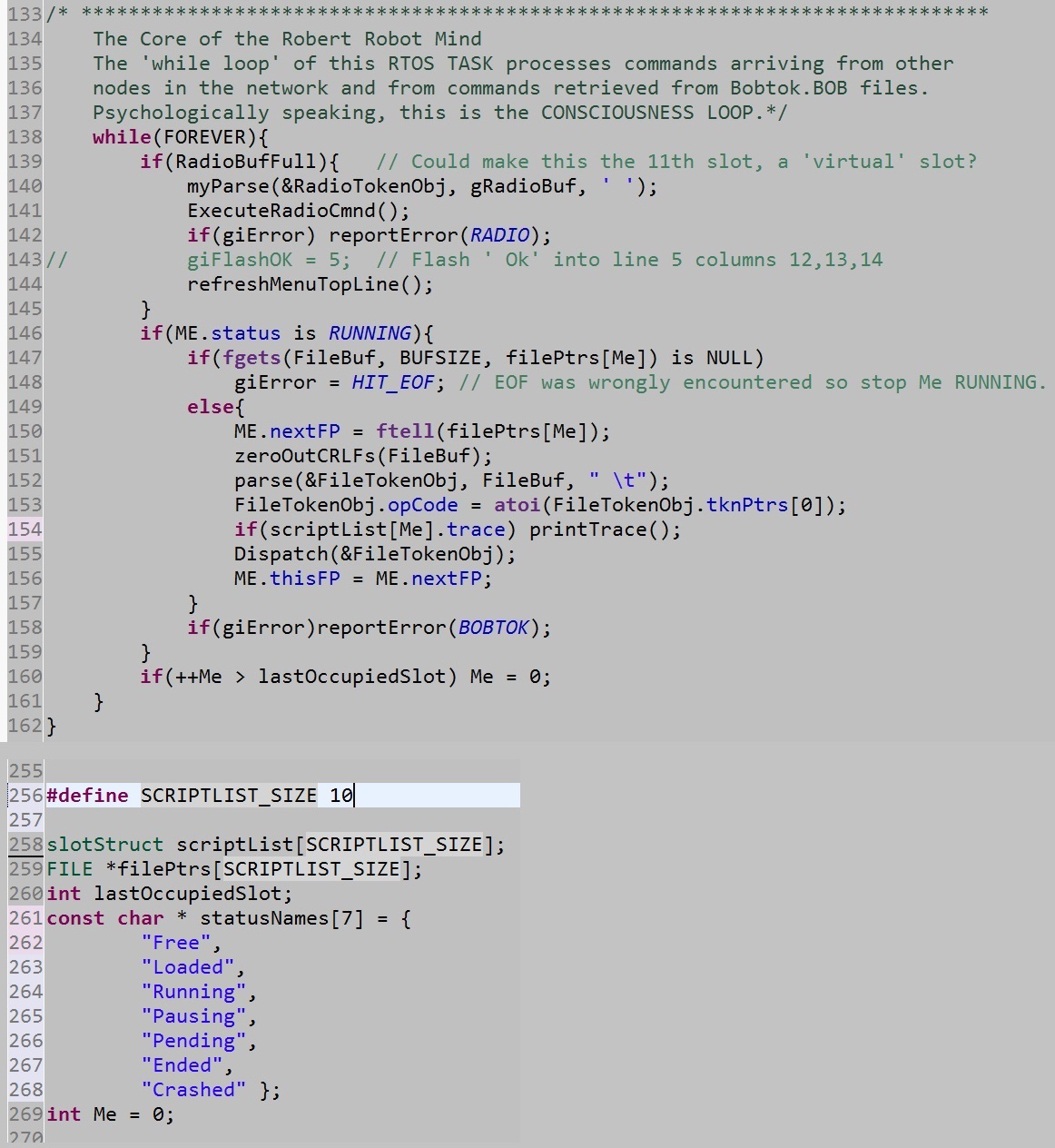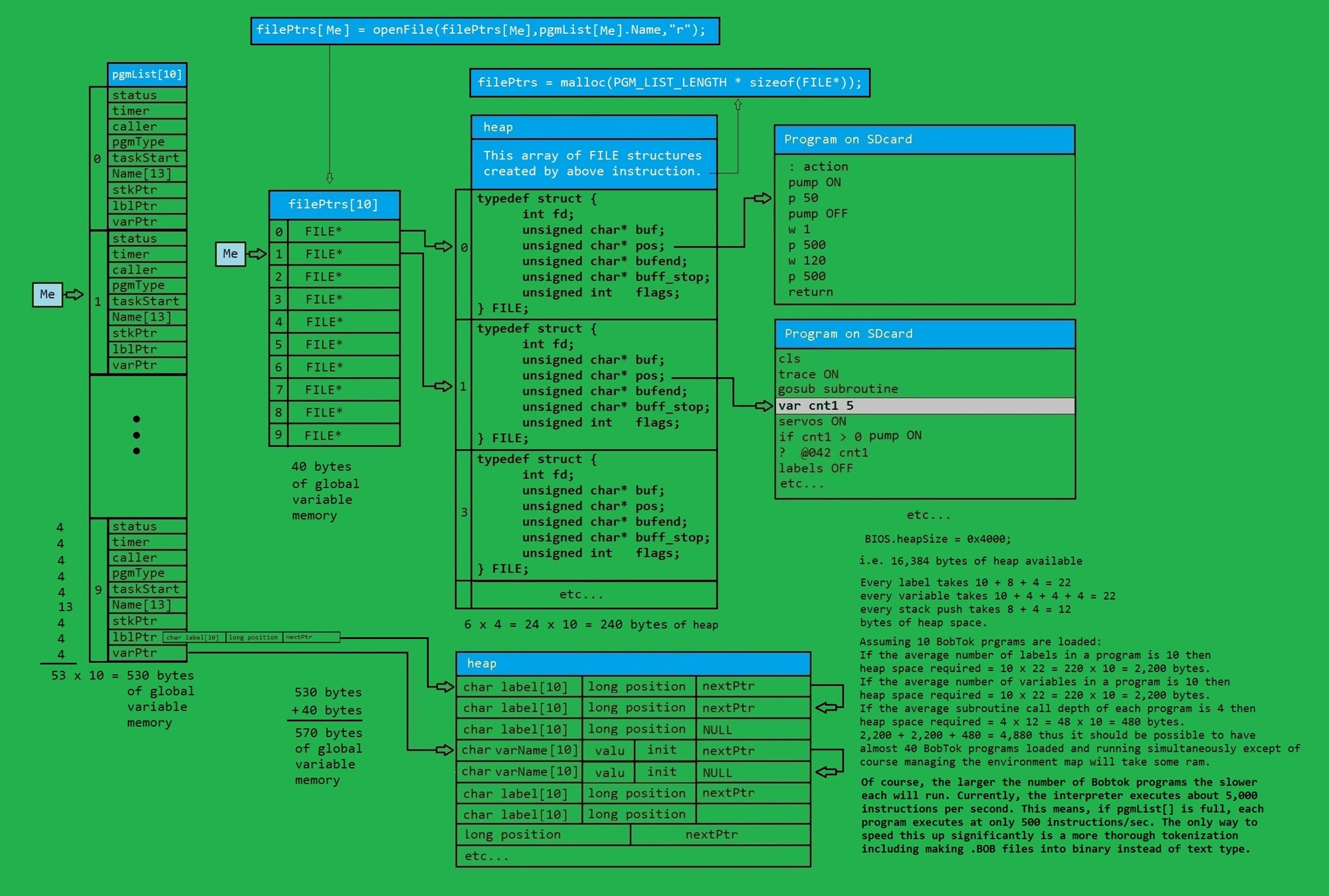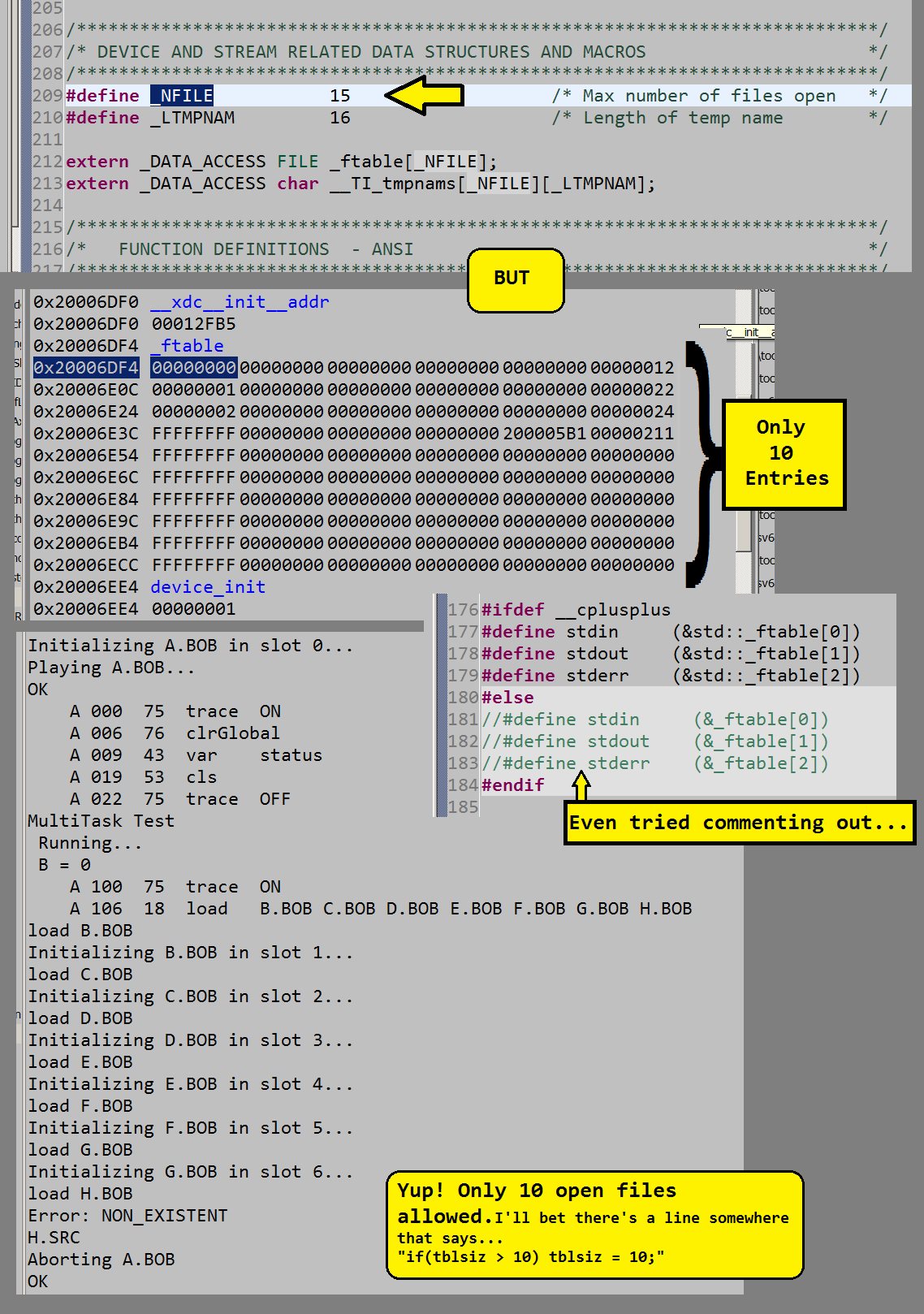Other Parts Discussed in Thread: SYSBIOS,
Tool/software: TI-RTOS
Using CCS I have written a C program to control a robot/metal lathe/chop-saw.
All of the I/O is interrupt driven and works very well.
The heart of the program consists of a command string interpreter.
The command strings can arrive by serial port or can be read from files on the SD card.
The interpreter reads commands round robin fashion from up to 10 open files and uses each file's position pointer as a virtual "program counter" so that such commands as ONGOTO, GOSUB, GOTO etc. have been quite easily implemented.
In effect it is a "multi tasking" interpreter. The whole thing works extremely well interpreting almost 5000 commands/sec, more than fast enough.
BUT, a problem arises whenever I try to open more than 7 files, i.e. a NULL is returned when it tries to open an 8th file.
Either I haven't specified enough of the right kind of RAM in .CFG (stack or heap or wherever it is that the file buffers are located) OR
my attempts to change _FS_SHARE in ffconf.h are not taking effect even though I click on 'Build All' and 'Clean... Build the entire workspace"
What should I do to allow opening of up to 15 files concurrently?
Your help will be greatly appreciated. Thanks. Dave
p.s. Here's a sample of code my interpreter processes. When 'load' tries to open Q.BOB a NULL is returned.


